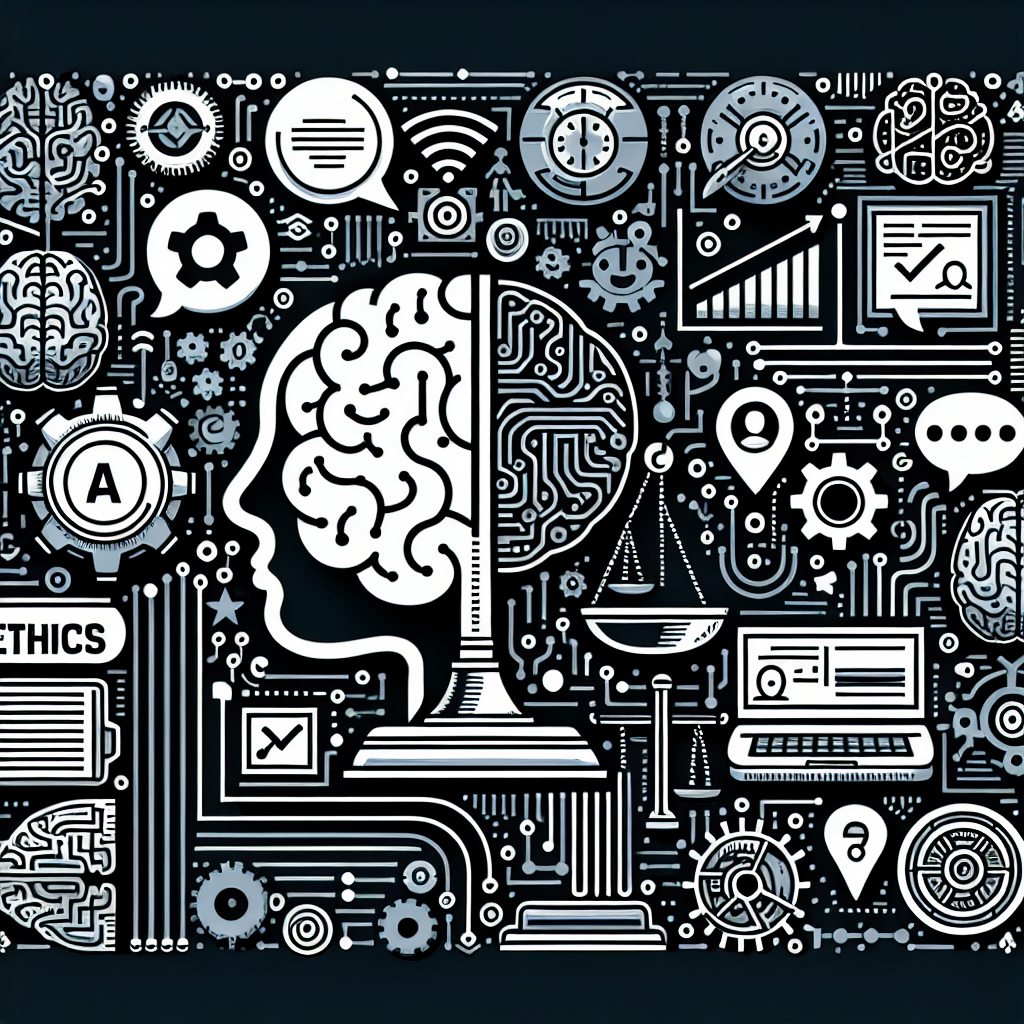The Ethics of AI in Social Media Content Creation
In recent years, the use of artificial intelligence (AI) in social media content creation has become increasingly prevalent. AI tools and algorithms are being used to automate tasks such as writing posts, creating graphics, and even managing social media accounts. While AI technology has the potential to revolutionize the way we create and consume content on social media, it also raises important ethical questions that need to be addressed.
One of the key ethical concerns surrounding the use of AI in social media content creation is the issue of transparency. When AI is used to generate content, it can be difficult for users to discern whether the content was created by a human or a machine. This lack of transparency can lead to questions about the authenticity and credibility of the content being shared on social media platforms.
Another ethical concern is the potential for AI to perpetuate bias and discrimination in content creation. AI algorithms are often trained on large datasets that may contain biased or discriminatory information. This can lead to AI-generated content that reflects and reinforces existing biases in society. For example, AI tools used to generate text may inadvertently produce sexist or racist language, perpetuating harmful stereotypes.
Additionally, the use of AI in social media content creation raises questions about the impact on human creativity and labor. As AI technology becomes more sophisticated, there is a concern that it could replace human creators in the content creation process. This could have implications for the job market and the livelihoods of content creators who rely on social media platforms for income.
Despite these ethical concerns, AI also offers several potential benefits for social media content creation. AI tools can help businesses and individuals create content more efficiently and effectively, saving time and resources. AI algorithms can also analyze data and user behavior to personalize content and improve engagement on social media platforms.
To address the ethical challenges posed by AI in social media content creation, it is important for companies and individuals to consider the following principles:
Transparency: Companies should be transparent about the use of AI in content creation and clearly label AI-generated content as such. This can help build trust with users and ensure that they are aware of the source of the content they are consuming.
Bias mitigation: Companies should take steps to mitigate bias and discrimination in AI algorithms used for content creation. This may involve auditing algorithms for bias, diversifying training data, and implementing safeguards to prevent the spread of harmful content.
Human oversight: While AI can automate many tasks in content creation, human oversight is still essential to ensure ethical standards are met. Companies should establish clear guidelines and processes for reviewing and approving AI-generated content.
User empowerment: Users should have the ability to control the content they see on social media platforms and have the option to opt out of AI-generated content if they choose. Companies should also provide tools for users to report and flag potentially harmful or inappropriate content.
In conclusion, the use of AI in social media content creation presents both opportunities and challenges. While AI technology has the potential to streamline content creation and improve user experiences, it also raises important ethical questions that must be addressed. By prioritizing transparency, bias mitigation, human oversight, and user empowerment, companies and individuals can ensure that AI is used ethically and responsibly in social media content creation.
FAQs
Q: How can I tell if content on social media was created by AI?
A: Look for clues such as generic language, repetitive patterns, or unusual mistakes that may indicate the content was generated by AI. Some platforms may also label AI-generated content as such.
Q: What steps can companies take to mitigate bias in AI algorithms used for content creation?
A: Companies can audit algorithms for bias, diversify training data, and implement safeguards to prevent the spread of harmful content. It is also important to have diverse teams of developers and data scientists working on AI projects.
Q: Will AI replace human creators in social media content creation?
A: While AI technology can automate many tasks in content creation, human oversight and creativity are still essential. AI is more likely to augment human creators rather than replace them entirely.
Q: How can users control the content they see on social media platforms?
A: Users can use privacy settings and preferences to control the content they see on social media platforms. They can also report and flag potentially harmful or inappropriate content to the platform administrators.

